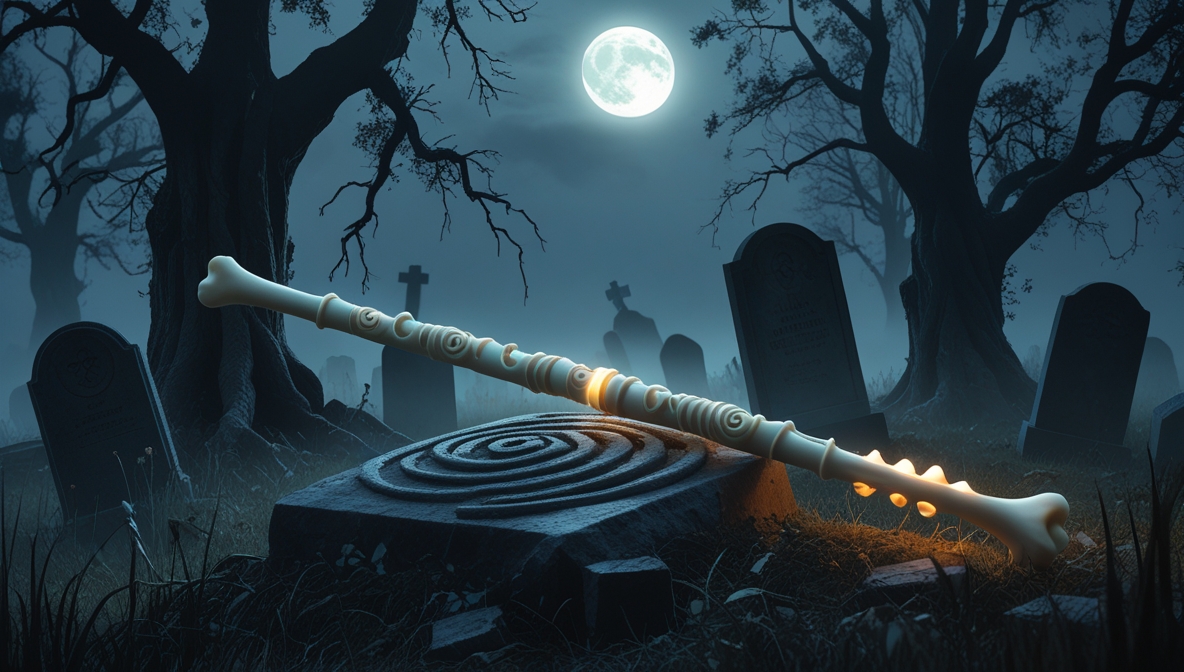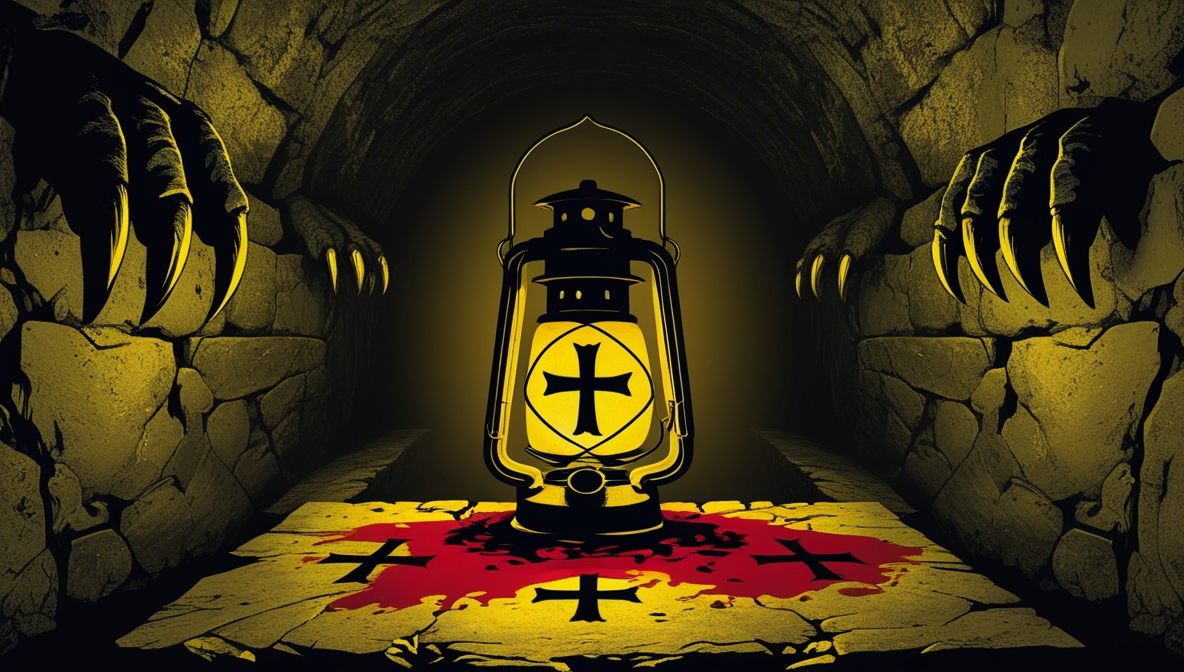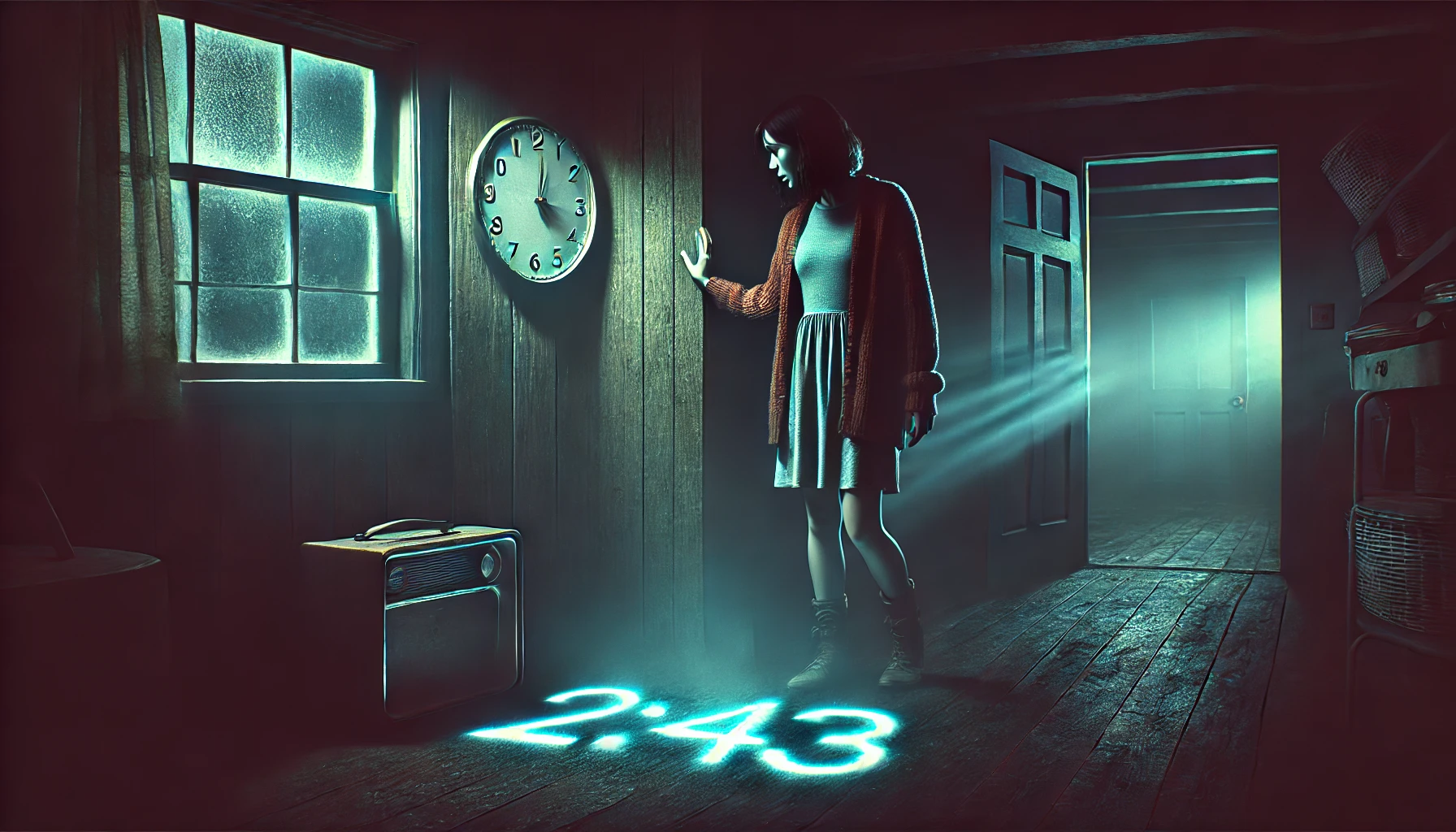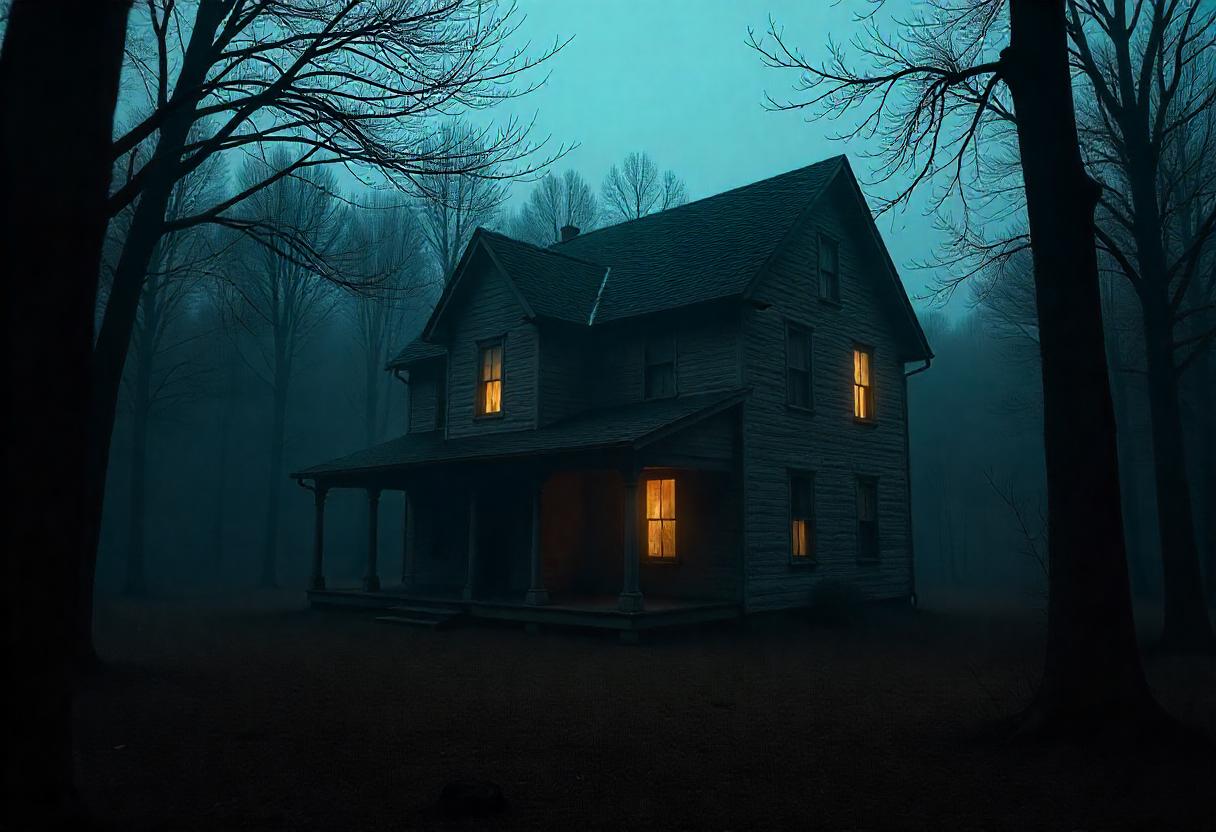
The Bone Flute
A moonlit rural graveyard, shrouded in mist, with gnarled oaks looming over crooked tombstones. A bone flute etched with spiral carvings lies on a disturbed grave, its pale surface glowing faintly. The scene is eerie, with a faint, unnatural hum suggested by subtle vibrations in the air.
The flute’s note quivered, low and wrong, like a sob from the earth. Lila Marrow’s hands shook, the bone-carved instrument cold against her lips in the moonlit graveyard.
A folklorist, Lila was driven by her father’s deathbed tale of a cursed melody that stole his village’s children decades ago. The flute, unearthed from a forgotten grave, was etched with spirals—swirling marks that haunted her nightmares, a recurring symbol of something ancient and awake. The rural cemetery, ringed by gnarled oaks, hummed with an unnatural stillness, its air heavy with the scent of damp soil. She clutched the flute, her pulse racing, knowing its song could unravel a truth too terrible to face.
The night was frigid, the stars obscured by clouds. Lila’s research spoke of a forgotten cult, their rituals tied to the land’s oldest bones, but the flute was no myth. Was she summoning answers or inviting doom? Her father’s final words, “Don’t play it, Lila,” clashed with her need to know why he’d suffered.
A twig snapped nearby. Widow Crane, the cemetery’s keeper, emerged from the shadows, her lantern casting jagged light. “That’s no toy,” she hissed, her eyes locked on the flute, her voice brittle with fear. “Some songs call what shouldn’t answer.” She turned abruptly, her lantern fading into the mist, leaving Lila with a chilling hint of the flute’s power.
Lila’s internal conflict surged. Her fear of the unknown screamed to bury the flute, but her father’s torment demanded she press on. The spirals on the flute seemed to writhe under her touch, tying her to a world where old gods or worse still lingered. The village nearby, its windows dark and doors bolted, whispered of a history no one dared speak aloud.
She raised the flute again, its spirals glinting faintly. The second note was deeper, vibrating through her bones, and the ground trembled faintly. Her flashlight caught fresh dirt on a nearby grave, as if something had clawed its way out. Her stomach twisted—was this her doing, or had the flute’s song already begun?
A faint hum answered, not from the flute but the air itself. Lila’s breath hitched. Widow Crane’s warning echoed: “What shouldn’t answer.” Was she watched, or was the flute warping her senses? The spirals, now a symbol of dread and compulsion, burned in her mind, urging her to play on.
The oaks groaned, their branches clawing at the sky. The larger world—a land scarred by forgotten rites, its people bound by silence—loomed beyond the graves. Lila’s father, the missing children, the flute’s maker—all were threads in a horror she couldn’t fully see. The hum grew, formless but close.
Lila’s fingers hovered over the flute’s holes. One more note might reveal the truth or break something irreparable. Her fear of becoming her father’s echo battled her need to end the curse. She played a final, trembling note, the sound swallowed by the night, and stepped toward the disturbed grave, choosing to face whatever answered, unsure if she’d banish the horror or join it.
A folklorist, Lila was driven by her father’s deathbed tale of a cursed melody that stole his village’s children decades ago. The flute, unearthed from a forgotten grave, was etched with spirals—swirling marks that haunted her nightmares, a recurring symbol of something ancient and awake. The rural cemetery, ringed by gnarled oaks, hummed with an unnatural stillness, its air heavy with the scent of damp soil. She clutched the flute, her pulse racing, knowing its song could unravel a truth too terrible to face.
The night was frigid, the stars obscured by clouds. Lila’s research spoke of a forgotten cult, their rituals tied to the land’s oldest bones, but the flute was no myth. Was she summoning answers or inviting doom? Her father’s final words, “Don’t play it, Lila,” clashed with her need to know why he’d suffered.
A twig snapped nearby. Widow Crane, the cemetery’s keeper, emerged from the shadows, her lantern casting jagged light. “That’s no toy,” she hissed, her eyes locked on the flute, her voice brittle with fear. “Some songs call what shouldn’t answer.” She turned abruptly, her lantern fading into the mist, leaving Lila with a chilling hint of the flute’s power.
Lila’s internal conflict surged. Her fear of the unknown screamed to bury the flute, but her father’s torment demanded she press on. The spirals on the flute seemed to writhe under her touch, tying her to a world where old gods or worse still lingered. The village nearby, its windows dark and doors bolted, whispered of a history no one dared speak aloud.
She raised the flute again, its spirals glinting faintly. The second note was deeper, vibrating through her bones, and the ground trembled faintly. Her flashlight caught fresh dirt on a nearby grave, as if something had clawed its way out. Her stomach twisted—was this her doing, or had the flute’s song already begun?
A faint hum answered, not from the flute but the air itself. Lila’s breath hitched. Widow Crane’s warning echoed: “What shouldn’t answer.” Was she watched, or was the flute warping her senses? The spirals, now a symbol of dread and compulsion, burned in her mind, urging her to play on.
The oaks groaned, their branches clawing at the sky. The larger world—a land scarred by forgotten rites, its people bound by silence—loomed beyond the graves. Lila’s father, the missing children, the flute’s maker—all were threads in a horror she couldn’t fully see. The hum grew, formless but close.
Lila’s fingers hovered over the flute’s holes. One more note might reveal the truth or break something irreparable. Her fear of becoming her father’s echo battled her need to end the curse. She played a final, trembling note, the sound swallowed by the night, and stepped toward the disturbed grave, choosing to face whatever answered, unsure if she’d banish the horror or join it.



Comments